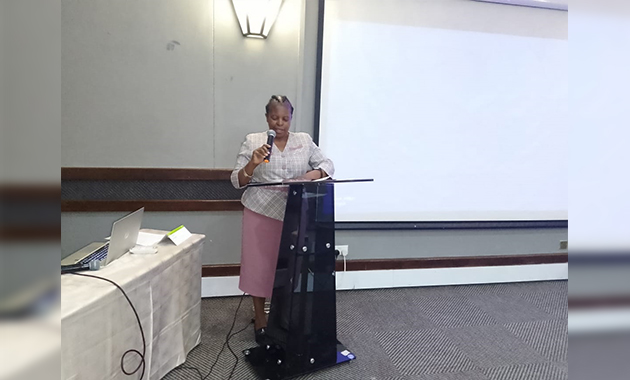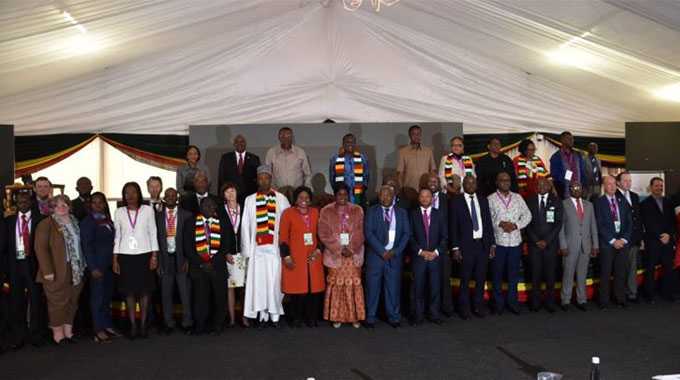Maternity homes combat infant mortality

Pamenus Tuso
Like what most expecting mothers do, when Senzeni Dube of Kezi in Matabeleland South became pregnant, she visited her local clinic seeking prenatal services.
After monitoring Dube’s pregnancy during the routine prenatal visits, nurses at the health centre referred her to Plumtree District Hospital for delivery.
“Nurses at Tshitshi clinic said I had gone for a very long period without conceiving and because of that I might encounter complications during birth. They then referred me to Plumtree hospital where there are better delivery facilities,” said Dube in an interview with The Chronicle.
She said she last had a baby about 15 years ago.
Dube is among scores of “high risk” pregnant women who are housed at Plumtree District Hospital maternity waiting home. More than 60 women susceptible to various birth risks such as young girls and old women well over their prime conceiving ages have been admitted at the maternity waiting home. The centre is being supported by the United Nations Population Fund (UNFPA), World Food Programme (WFP) and the government.
“Similar waiting homes have also been established in 37 hospitals in Matabeleland South, Matabeleland North and Manicaland provinces where mortality rates are high.
“This programme is a joint project between UNFPA, the government of Zimbabwe and WFP. The major aim of this programme is to strengthen maternal health service and other reproductive health services for vulnerable women in Zimbabwe as well as to encourage mothers to deliver at institutions where they will receive adequate professional treatment,” said WFP Zimbabwe Country Representative and Director, Eddie Rowe.
Under the programme, WFP is providing a nutritious food basket to the expecting mothers. The food basket consists of cereals, pulses, vegetable oil and super cereal, a maize-soya blend fortified with various minerals and vitamins. WFP is also supporting the government in national food fortification programme.
“We provide food assistance to ensure adequate nutrition to a pregnant woman which is beneficial to the development of both mother and the baby. Additionally, WFP is working on finding innovative solutions that will help ensure sustainability of food provision and improve the livelihoods and maintenance of Maternity Waiting Homes (MWHs) through activities such as vegetable gardening,” said Rowe.
Under the joint programme, UNFPA takes care of the waiting home shelters as well as supporting the clinical side while the government through the Ministry of Health and Child Care is providing technical components like midwives and medicines.
“We are providing technical assistance to the Ministry of Health and Child Care in improving quality of care at the MWHs. Recently, we assisted the ministry to review and revise its national guidelines, with a major thrust on improving the quality of services provided at the MWHs and integrating family planning, HIV/Aids gender-based violence and cervical cancer screening services. We also assisted the ministry in the screening, identification and surgical repair of women with obstetric fistula,” said Esther Muia UNFPA Zimbabwe Country Representative.
According to the 2015 Zimbabwe Demographic Health Survey, the estimated maternal mortality ratio for Zimbabwe is 651 deaths per 100 000 live births.
“While this trend in the last 5 to 10 years shows a decline, the ratio is still unacceptably high. One of the factors which is attributed to those high mortality rates was community delivery. The risk of maternal and neonatal death is increased by delivering outside a health institution. Therefore, in an effort to encourage mothers to come and deliver at institutions, the idea of MWHs was strengthened,” said Muia.
The UNFPA Country Representative said despite its overwhelming success, the programme has also encountered its share of challenges.
She cited the deteriorating structures and the increasing number of admissions.
“Some of the shelters need renovations and expansion since their capacities are now being outweighed by the admissions. If one looks at the bed capacity against the admissions in the maternity waiting homes, there is overcrowding because the infrastructure can no longer support the demand for the service. There are also problems of fuel in terms of firewood to prepare food,” said Muia.
Dube, who has been at Plumtree District Hospital maternity waiting home for close to a month hailed WFP and UNFPA for coming up with the scheme.
“Now that I am at a place where there are technical experts such as doctors and midwives I am expecting a safe delivery. The nutritious food that we are also getting from WFP is also assisting us very well in our diet. The prices of food have gone so high that we cannot afford it,” said Dube who is now referred as a “de facto” matron at the centre because of her maturity and generosity to other expecting mothers at the centre.
“My colleagues always refer to me as a matron. As a person who has delivered before, I always teach the other young women on the importance of good hygienic practices. I always try to make sure that all the mothers are motivated and are in good condition. If there are any problems at the centre such as water and food shortages, I always engage the relevant authorities,” said Dube.
Another expecting mother at the waiting home, Songiwe Moyo said she had gained confidence and self-esteem after meeting various mothers with different backgrounds.
“In my community, I am not used to a lot of people. I am always alone in my garden. At this centre, I have learnt on how to socialise and share life experiences with other women. Also in terms of transport, it is easier for me and the other mothers to be booked here,” said Moyo.
Rowe pointed out that apart from improving the nutrition of mothers and babies and reducing maternal mortality, MWHs provide a place from mothers get together to provide mental and emotional support for one another.
“The beneficiaries have indicated that being together is mentally, socially and physically beneficial. Even the health workers find it easier to give the mothers counselling as a group and they can also encourage each other. When one goes into labour, they can escort each other to the labour ward which makes life easier compared to when they are by themselves at their homes,” he said.











Comments